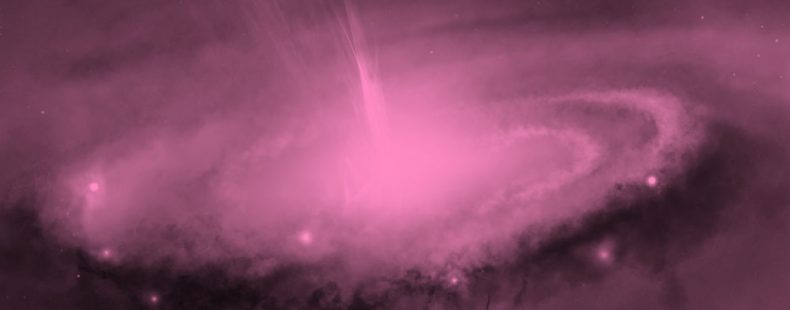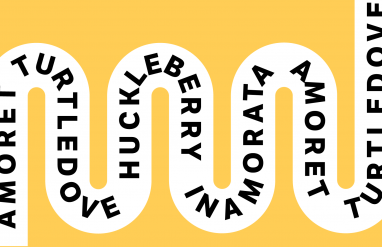All of space as we know it makes up the universe. The universe is gargantuan and is home to an untold number of galaxies, stars, and planets. But what if there were two universes? Or five? Or five hundred? We aren’t just talking about the universe anymore. We are talking about the multiverse, the theoretical collection of our universe plus all those other universes out there (including the one that has an evil version of you, but with a goatee—or is clean-shaven if you already have a goatee). Multiverse is a term used both in science and science fiction to refer to the idea of other existing universes. It’s not the only such term, though. We’ve scoured the lexicological multiverse to find a collection of ways that we refer to the possible worlds beyond.
parallel universes
The term parallel universe is used in science to refer to other hypothetical universes that exist alongside ours. We can’t see or interact with these universes in any way; they don’t exist in our universe, but they may exist … somewhere. Scientists have many theories about parallel universes. One of the more popular theories is that every possibility that could have happened has—in another parallel universe somewhere.
megaverse
The term megaverse is used, particularly in science fiction, to refer to a humongous universe that contains many multiverses within it. This grandiose-sounding word is often used to refer collectively to all of the parallel universes and multiverses that exist within a given fictional reality or possibly even within our own.
omniverse
A megaverse isn’t big enough for you? Then, you need an omniverse. The word omniverse is often used in science fiction to refer to all of reality and includes all of the universes, multiverses, pocket dimensions, celestial realms, and anything else that makes up existence. In comic books, Marvel and Marvel fans collectively refer to all universes that have existed and will ever exist (including our reality and other fictional multiverses) as the omniverse. So while Spider-Man (a Marvel character) and Batman (DC) may not exist in the same universe, multiverse, or megaverse, they (and every other fictional character) are part of the omniverse.
🚀 Try the quiz!
In an alternate timeline, you may have already taken our quiz on these words. But you can take the quiz now and see how many of these “multiverse” words you already know (or wait until you’ve reviewed the full list).
For additional linguistic exploration, take a look at our word list for scientific terms that relate to the multiverse.
other dimensions
In science and mathematics, the term dimension is used to describe space and time. For example, our everyday lives involve three spatial dimensions (height, width, and depth) and time exists as the fourth dimension.
In science fiction, technology often allows people to discover other dimensions and use them to explore places that we can’t while limited to only the four dimensions we know about. The places that this technology allows them to travel to are often referred to as “other dimensions” or a fifth dimension. Because these travelers are already breaking the laws of physics, these other dimensions can often get pretty weird and abstract.
alternate realities
The abstract word reality is used to collectively describe everything that exists or isn’t fictional. An alternate reality is a reality that exists beyond the one we experience right now. In popular culture, this term is often used interchangeably with similar words, like parallel universe. Because alternate realities are not the same reality we know, they don’t follow the laws of physics and can be pretty magical. For example, the Harry Potter series takes place in an alternate reality of our world in which witches, wizards, and magical creatures are real.
parallel timelines
The word timeline is used to describe a chronological series of events. For example, the Egyptian empire existed thousands of years ago in our timeline. A major theme in popular culture is the possibility of parallel or alternate timelines. The most common and basic version of this concept describes time as a tree with major events causing time to split into multiple branches, each branch containing the timelines that include the different possible outcomes of that event.
The concept of parallel and alternate timelines can often get very confusing, particularly in fiction featuring time travel that explores changes in history due to these alternate timelines. Less seriously, the idea of parallel timelines is often jokingly used to explain the Mandela Effect (when a large number of people share a false memory) and the Berenstein (not Berenstain) Bears books we all remember reading in what was clearly an alternate timeline.
alternate planes of existence
The word plane is generally used in mathematics to refer to a flat two-dimensional surface. Outside of math, the word plane is sometimes used to describe alternate realities or “planes of existence” as if they were planes of glass placed alongside each other. For example, Buddhist teachings include the idea of 31 “planes” or “lands” that a person travels through in the cycle of life and death: our mortal plane and 30 others that belong to spiritual beings.
In popular culture, the word plane is often used to refer to alternate words that are home to strange creatures or different rules of reality. For example, Dungeons and Dragons has a strange Plane of Mirrors that is home to dangerous monsters and allows travel through mirrors.
other realms
The word realm refers to a region where something happens. In our real world, the word realm is sometimes used in the phrase quantum realm to refer to the subatomic part of reality that is home to very small and very confusing things. In brief, the quantum realm seems to be a place where normally impossible things may be possible, such as particles existing in multiple places at once.
Outside of science, the word realm is often used in popular culture, theology, spiritual, and paranormal science to refer to places beyond our reality. For example, the idea of a spirit realm that is home to ghosts and souls of the dead is common in religion and spirituality. Other stories and belief systems tell of realms beyond our world, such as the realm of fairies, the realm of elves, or the realms of gods such as Olympus or Asgard.
isekai
Isekai, which translates to “different word” or “another world,” is a popular Japanese fiction genre that features characters who are transported from our world to another one. Isekai stories are similar to classic stories, like Alice in Wonderland or The Wizard of Oz, in which a character winds up in a strange new world.
In isekai fiction, sometimes characters travel back in time or travel to those alternate timelines we mentioned before. Some other possible destinations in isekai stories include the demon realm, a classical medieval fantasy world with dragons and magic, or even the world of a video game.
Based on how often it comes up in popular culture, the possibility that other universes besides our own exist somewhere has mesmerized us for quite a long time. This idea is also still a frequent topic of discussion among scientists, too, which has led to theories like the many-worlds interpretation that try to explain how a multiverse might work if it is actually real. If you are curious as to what science has to say about all this multiverse madness, check out our discussion of the language about the multiverse.













